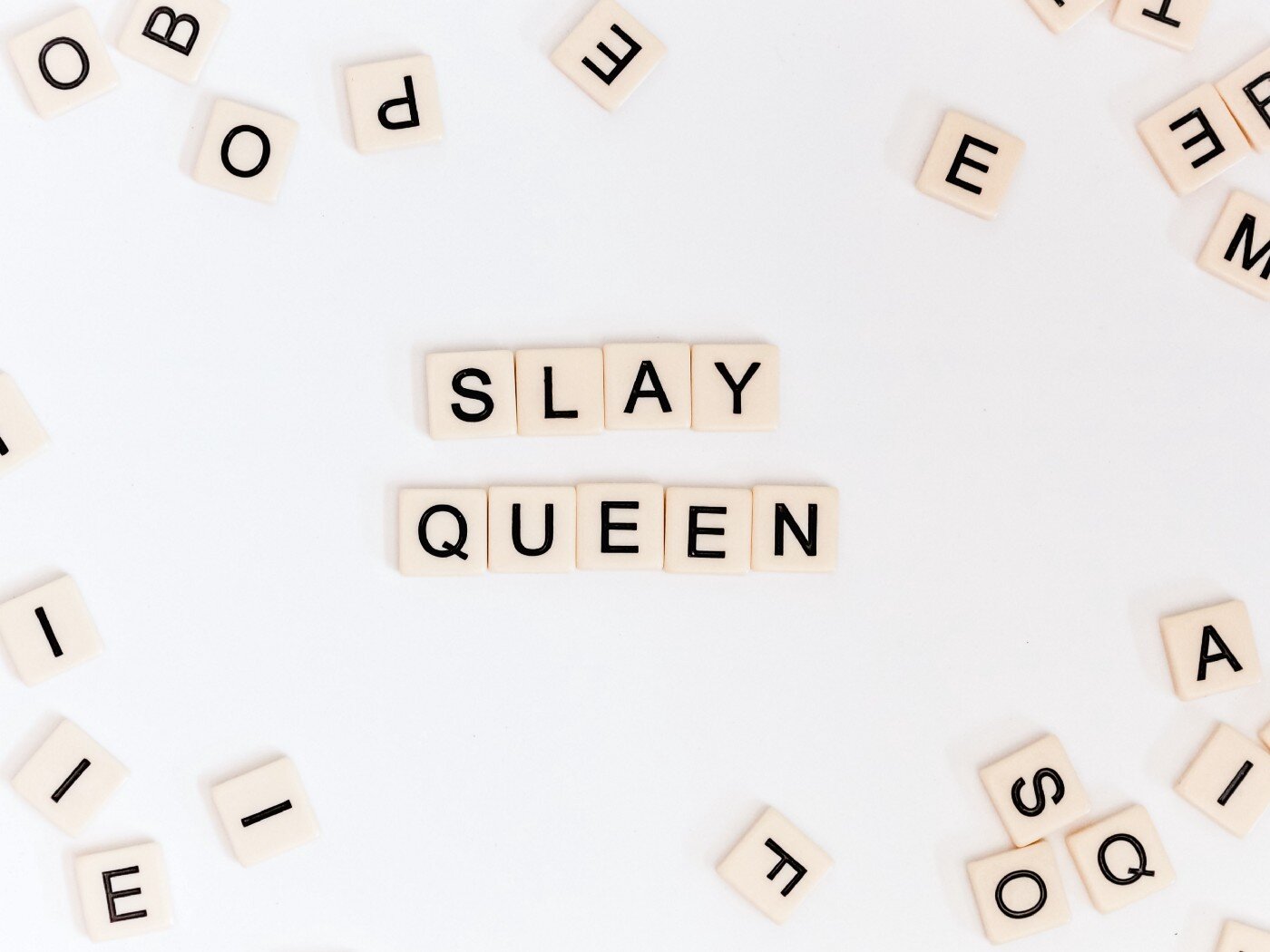The Year Walter Saved Christmas
Read my mother’s Depression-era childhood recollection of a beloved family border below:
In memory of Bruno Walter Kohler, and to all who bring delight to the hearts of children, any time of year.
This is the story mom tells every Christmas. Her father told it before her. She tells it in a formal tone, weighty and reverent, which is different from the way she ordinarily speaks. It’s as if she understands that when she is gone, there will be no one left to tell this story. She tells it to me, her daughter, and her grandson William, as we set up the Christmas crèche with its painted, plaster figurines– this manger, which has been in our family for about as long as this story has been told.
My father Ted, she begins, who was raised in abject poverty during the Great Depression, he never had a Christmas tree as a child. But when I was born, he always saw to it that I had a Christmas tree, and a large one at that.
William unwinds cocoons of tissue paper, worn with age, and soft as flannel. Small sheep emerge, curled on grass green bases.
But my father was also thrifty, mom continues, and waited until the very last minute to buy a tree, on Christmas Eve, when the prices came down. Of course in those days, the practice in New York was not to put the tree up, or even to trim it, until Christmas Eve. And then people would celebrate for the twelve days that followed. Which is very different from what it is today, when people throw their trees out the day after Christmas.
William unwraps a shepherd, and another sheep, this one with neck twisted backwards, looking over its shoulder. I place this lamb, as I always do, backwards, with its hind quarters facing the crèche, and its muzzle craning to witness the miracle of our savior’s birth.
One year, my mother continues, when I could not have been more than six or seven, my father waited, as usual, until Christmas Eve to buy a tree. But when he went out looking, he found that trees were scarce, and actually, there were no trees at all for sale. He did not know what to do. He went home, and I imagine he told my Mother and Walter, who was sitting at the kitchen table, that there would be no Christmas tree that year. So Walter left for Judges Bar on Zerega Avenue, his favorite watering hole. Lo and behold, a couple of hours later, Walter returned with a cheap bottle of Muscatel, a gift for my teetotaling father, along with two large balsam branches that he had bought from a barfly. My father lashed the boughs together for a tree, and decorated it. And it was beautiful. And I never knew it wasn’t a real tree until I was older and heard the story. So that was the year that Walter saved our Christmas.
Walter, a boarder in my mother’s home, not only saved Christmas that year, but he started a family tradition that endures. Walter bought my mother this manger from a five and dime store. We still erect it every December, no matter how busy we are, and sometimes very late in the season, even adding figures after Christmas Day.
As is the case this December, when we build out our nativity scene on December 26th, which we insist on calling Boxing Day, a British holiday, though we are American. We enjoy this little affectation; a nod to imagined Old World Christmases we have never known. William continues to unwind tissue and I to arrange: Mary and Joseph, the Magi and camels, all crowding the holy crib, and Archangel Gabriel perched atop. But there are also unlikely worshipers, swans and turkeys, dogs and cats–out of proportion china keepsakes, added over the years, collected from boxes of Red Rose Tea and God knows where else.
Walter loved Christmas and would shake the snow globe of childhood memories to mesmerize my mother with sparkling flakes of yuletides past, the Christmas markets, the handcrafted dollhouses, the Christstollen with candied fruit.
William unwraps the last bundle to reveal the central character in this nativity drama. In years when we are not so late in setting up the crèche, we hide the babe behind the manger until Christmas Eve, when we pop the little light of the world into his straw bed. But now, with Christmas past, I place Jesus right at the plaster knees of his mother, bent and adoring, arms outstretched, hands cupped, as if cradling love itself.
Bruno Walter Kohler’s own little light kindled into the world in a small town in Saxony, in the late 19th Century. Not much is known about his early years, besides what he shared of those idyllic Christmases. Walter endured the Great War and the severe inflation that followed. He became a merchant seaman out of Hamburg, and in the early 1930s he sailed into New York Harbor and jumped ship, rather than return home, where he might well have been conscripted into the Third Reich.
Walter went looking for lodging and found my great-grandmother, Carmela, who rented him a room in her tenement apartment in East Harlem. It was not uncommon in those days for a divorcee, like Carmela, to rent spare bedrooms. Her daughter Mary lived upstairs on the top floor in the same building, with her husband Ted and my mother, Constance.
An undocumented immigrant, Walter worked seven nights a week tossing back-breaking bundles of The Daily News from a truck onto newsstands throughout the city. He worked all night and slept all day, for years. The Great Depression was still hanging on when my mother was born in 1938. Mary was nineteen and Ted was twenty, and unemployed. It was Walter who bought the milk for little Connie, week after week.
In 1943, the whole family, including Walter, moved from Manhattan to the top floor of a two-family house in the Bronx. One year later, at forty-eight, Carmela got sick and died from something mysterious that doctors at the time didn’t understand. Walter stayed on with Ted and Mary and Connie. While World War II raged in Europe, Ted got Walter off The Daily News paper truck and found him a job as a dishwasher at Schreiber’s, a Kosher restaurant in Manhattan. This was an improvement, or was it? Now Walter worked forty hours a week and had two days off, which he spent, increasingly, at Judges Bar up the street.
Up until then, no one realized Walter was an alcoholic because he worked every day and never had much time to sit on a barstool. Gradually though, his behavior changed and he became unbearable. He fell down the stairs drunk more than once, and Ted and Mary asked him to leave more than once. But when Walter begged to come back home, they relented, every time, until the last time, when they didn’t take him back.
Now Walter was on the outs, living in a furnished room nearby. He would often walk by the Tratman Avenue house and talk to Connie, playing out front. In the early 1950s, some of the Bronx was still undeveloped. There was open space and marshland for children to explore. Swamps would freeze over, and kids like my mother would lace on their skates and disappear until dinnertime. One such frozen winter day, Ted and Mary got a call from the police that Walter had been found dead in one of these swamps, about two blocks from the house. According to the coroner’s report, the immediate cause of death was heart attack from “chronic ethanolism.” Alcoholism. Walter had no insurance and no savings. My grandfather paid all expenses to bury him.
William and I add the finishing touch: the snowy forest. None of us has ever questioned the topographic accuracy of these snow-flocked, bottle brush pine trees that we plant behind the stable in Bethlehem. I step back to take in the scene. One shepherd’s staff is missing, another’s sandaled foot is chipped. The porcelain turkey squats beside the rhino.
My mother is pleased with how the manger has turned out, though it looks pretty much the same as it does every year. She is thinking of Walter:
There was a great deal of accumulated sentiment for Walter, who had lived with us for more than two decades. There was nobody else in his life, just our family. He was with us when I was born in 1938 until he died, when I was sixteen. I remember one time I passed Walter’s room, I must have been seven or eight. The door was open. On his dresser I noticed a tiny, leather glove. Now we knew that Walter had lost his wife and child in a fire in Germany many years earlier, but that’s all we knew. He never talked about it. There was just that one glove that he kept on top of his bedroom dresser. I remember it to this day.
I count sheep and make sure there are the same number on either side of the stable, because this is how it’s always been done. It’s as if someone, at some point, perhaps Walter himself, figured out that prioritizing visual balance fostered the harmonious effect that scenes like these call for. Everything is as it should be, as the manger figures from the five-and-ten-cent store settle into their roles for yet another season, to reenact the same story, with the same message. An inexpensive set of statues and a pair of pathetic pine branches, bought by a beloved drunk, tell the tale of agony and abiding love at Christmas.







